Autism: A special report by Kathy Gollan – exploring Marcia Devlin
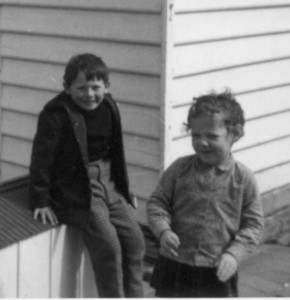 When my first book, Nobody Nowhere, became a major international bestseller, my Australian publisher, Doubleday received a submission from Chris Eipper for his fiction novel he was hoping to get a publisher for. His submission was rejected. I then received a letter from him via my UK publisher (I was now living in the UK) informing me that he was involving himself as a researcher in my case. I also received copies of letters he sent to each of my publishers and to the multitude of journalists who had interviewed me. I also heard from Autism Victoria that he had contacted them to try and discuss my diagnosis with them.
When my first book, Nobody Nowhere, became a major international bestseller, my Australian publisher, Doubleday received a submission from Chris Eipper for his fiction novel he was hoping to get a publisher for. His submission was rejected. I then received a letter from him via my UK publisher (I was now living in the UK) informing me that he was involving himself as a researcher in my case. I also received copies of letters he sent to each of my publishers and to the multitude of journalists who had interviewed me. I also heard from Autism Victoria that he had contacted them to try and discuss my diagnosis with them.
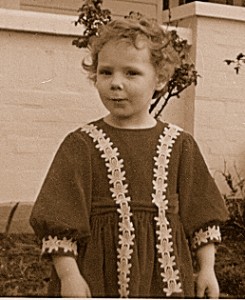 With no qualifications nor clinical experience with which to do so, and no personal involvement with me outside of having once been my honors year thesis supervisor, Chris Eipper was presenting himself as a researcher to put forward his claim that they had all been duped, that I could never have been autistic and was therefore some kind of seriously mentally ill or disturbed person. To back himself up, he had spent a year gathering acquaintances who believed they had known me.
With no qualifications nor clinical experience with which to do so, and no personal involvement with me outside of having once been my honors year thesis supervisor, Chris Eipper was presenting himself as a researcher to put forward his claim that they had all been duped, that I could never have been autistic and was therefore some kind of seriously mentally ill or disturbed person. To back himself up, he had spent a year gathering acquaintances who believed they had known me.
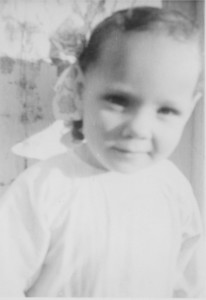 These included Marcia Devlin, a student during my Dip Ed in 1992, now a professor at Deakin University in the Department of Education and columnist for The Age. Along with around 80 students, she had shared a 1 hr English class with me, once a week for 6 months. But before Marcia Devlin was interviewed about me, before she volunteered herself to join her Sociology lecturer, Chris Eipper on the now notorious ABC interview, someone had already written about HER two years before. That someone was me.
These included Marcia Devlin, a student during my Dip Ed in 1992, now a professor at Deakin University in the Department of Education and columnist for The Age. Along with around 80 students, she had shared a 1 hr English class with me, once a week for 6 months. But before Marcia Devlin was interviewed about me, before she volunteered herself to join her Sociology lecturer, Chris Eipper on the now notorious ABC interview, someone had already written about HER two years before. That someone was me.
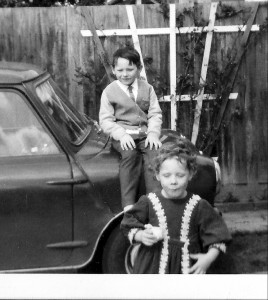 Just as I had already written about Chris Eipper in Nobody Nowhere in 1991 (5 years before the ABC interview), I had already written about Marcia Devlin in my second autobiography, Somebody Somewhere in 1994 (2 years before the ABC interview) as ‘Vanessa’. And neither of them ever talked about THAT.
Just as I had already written about Chris Eipper in Nobody Nowhere in 1991 (5 years before the ABC interview), I had already written about Marcia Devlin in my second autobiography, Somebody Somewhere in 1994 (2 years before the ABC interview) as ‘Vanessa’. And neither of them ever talked about THAT.
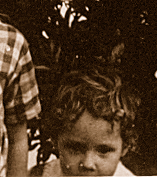 Marcia Devlin’s testimonial in the ABC interview presented me as highly invested in and desperate to be identified as autistic, essentially presenting me as someone seriously emotionally disturbed or personality disordered who preferred to think of myself as autistic.
Marcia Devlin’s testimonial in the ABC interview presented me as highly invested in and desperate to be identified as autistic, essentially presenting me as someone seriously emotionally disturbed or personality disordered who preferred to think of myself as autistic.
In the interview, in 1996, this is how Marcia Devlin presented me, and herself to the ABC interveiwer, Kathy Gollan:
Kathy Gollan: What did you think when she told you she was autistic?
Marcia Devlin: I thought it was sad, because I thought ‘Here’s a very emotionally disturbed young woman who is looking for something.’ She was sort of pleased when she told me, she told me in confidence, that she – she said you know, ‘Please don’t tell anyone I’ve got this secret and this thing that you musn’t tell anyone’ and made me promise and then said, ‘I’m autistic.’ I thought it was sad because I thought ‘I don’t think you are autistic but I think you’re trying to make sense of the experiences you have and that’s something that you’ve latched on to.’
And a little while later, a couple of other people who I met up with from the Dip.Ed. would laughing and joking with me say ‘Do you know Donna’s secret yet?’ And I said, ‘I don’t know what you mean.’ And they said, ‘Oh, she’s autistic. She’s going round telling everyone secretly that she’s autistic.’
Kathy Gollan: Why were you and your fellow students so cynical about the fact that she was regressing into this autism?
Marcia Devlin: Because the change was so dramatic. And it seemed so acted. She seemed like she was making a point all the time of everyone knowing at every moment that she was autistic. And it appeared to me, and to other people I spoke to, that when she needed to understand something for her benefit, like she needed to understand what was needed for an assignment, she switched out of this “autism”, understood what she needed to know and then went back into it again. So where we were doing something that didn’t matter, like we did you know Phys.Ed. we did square dancing, what’s that? barndancing or whatever it’s called, you know, she was ‘Oh don’t touch me, don’t touch me!’ and carrying on the whole time because it wasn’t important. But when we were sitting down discussing what was required for an assignment, there was none of that sort of behaviour. It was completely obvious that it was contrived. And then when people found out that this book had been accepted for publication, everyone said, ‘Ah ha, that’s why she’s doing it.’
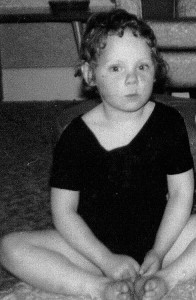 So perhaps its time to explore for a change, what was Marcia Devlin like before this interview in 1996 and what drove her to want to support her own Sociology lecturer, Chris Eipper, in attacking my reputation?
So perhaps its time to explore for a change, what was Marcia Devlin like before this interview in 1996 and what drove her to want to support her own Sociology lecturer, Chris Eipper, in attacking my reputation?
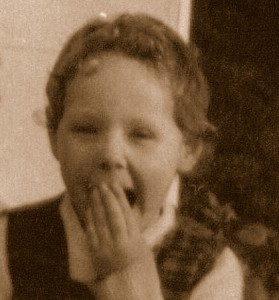 Here’s what I wrote of Marcia Devlin in Somebody Somewhere, published TWO YEARS BEFORE THE ABC INTERVIEW where I protected her identity with the name ‘Vanessa’. I also disguised the fact she had approached me about her fiance by referring to him instead as her ‘friend’:
Here’s what I wrote of Marcia Devlin in Somebody Somewhere, published TWO YEARS BEFORE THE ABC INTERVIEW where I protected her identity with the name ‘Vanessa’. I also disguised the fact she had approached me about her fiance by referring to him instead as her ‘friend’:
I liked Vanessa. She was a student in the course with me. I liked her hair and I liked her eyes. I reminded Vanessa of someone she knew. ‘Do you know anything about dyslexia, Donna?’ she asked me. ‘Some,’ I said.
Vanessa had a friend who had reading difficulties but she had always felt it was more than this. Her friend had shared the same strange ways and had failed to pick up the subtleties. Vanessa wondered what it was that we shared in common.
‘Does dyslexia also involve having trouble being with people?’ she had asked me. ‘What sort of difficulties?’ I asked. ‘He doesn’t seem to notice people’s feelings. He talks over everyone or he talks really loudly about anything in front of anyone. I end up feeling embarrassed by him sometimes and when I explain it to him he really tries to understand but then he does it again,’ she explained. ‘When I met him, I thought his funny ways were really cute. I thought he was just naive and that he’d learn all these things, but now we’ve been together three years and I think either he can’t change or he doesn’t want to bother.’Vanessa was close to a person with some difficulties like mine. I could, therefore, risk telling her why I was like I was. I told her about autism. When I saw Vanessa was placed with me for the first teaching round, I was relieved. There would be someone here who would understand me. I spoke freely and openly with her.
We were both teaching at the same school and it was the day our supervisor would come to assess our ability to teach. One hour before my assessor came to watch me, Vanessa asked me to come with her to the room she was teaching in. She handed me a letter. I walked away to read it. The letter explained that I was making her very, very uncomfortable. It said that she had been dropping hints but I hadn’t seemed to get them. The note said that I was selfish because I only talked about myself and never asked her about herself except to say, how are you? The note said not to talk to her in front of people anymore and not to discuss the note with anyone except her. I was not to do so face to face. I was to do so only by phoning her outside of school hours to discuss it.
Vanessa never realized that to say, How are you? from my own feelings was a big thing. She never realized that none of the things that had upset her were intentional. I burned up with shock and shame and hurt. I stood in the bathroom and splashed myself with cold water. I was about to vomit when the assembly bell rang. My next class was going to be assessed by the lecturer who I had already been informed I couldn’t tell about the letter.
I wanted to run, to cry, or be sick. Betrayed by a ‘the worlder’ I had trusted with my self, I had nothing left within me to drive me to fight back. The lesson was assessed as very good but I was told I had been hyper and manic. ‘You won’t be able to keep up this pace as a teacher,’ warned the lecturer.
My experience with Marcia Devlin (‘Vanessa’) were so disturbing to me they significantly impacted on my ability to complete remaining teaching rounds or trust socialising with other teachers on my rounds. I wrote, further in Somebody Somewhere of my social anxiety in the staff room of the following teaching round:
These faces attempted to make conversation and it was like how it feels when the dentist tries to make conversation before taking your teeth out in a room that reeks of what is about to happen. I answered each of them, feeling ill and needing a toilet break and mental space. Their smiles merged with the memory of Vanessa’s and became a category in my mind that signaled danger.
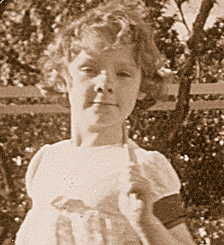 Marcia Devlin had her own demons. Perhaps, a fiance she feared was autistic but didn’t yet have the word for it (The work of Hans Asperger was first translated into the English language in 1996). When I named the similarity as autism it may well have had personal repercussions for her as it would have reflected on the partner she was intending to marry. Marcia Devlin would probably have read about herself in Somebody Somewhere in 1994, two years before the ABC interview and has never drawn public attention to what I’d written about her. Perhaps because she went on to a high level job in the Education Department (she presently holds the inaugural Chair of Higher Education Research at Deakin University).
Marcia Devlin had her own demons. Perhaps, a fiance she feared was autistic but didn’t yet have the word for it (The work of Hans Asperger was first translated into the English language in 1996). When I named the similarity as autism it may well have had personal repercussions for her as it would have reflected on the partner she was intending to marry. Marcia Devlin would probably have read about herself in Somebody Somewhere in 1994, two years before the ABC interview and has never drawn public attention to what I’d written about her. Perhaps because she went on to a high level job in the Education Department (she presently holds the inaugural Chair of Higher Education Research at Deakin University).
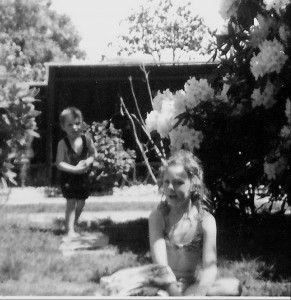 But I have had the legacy of Marcia Devlin’s testimony for the past 16 years. It’s time people got to know her as she was two years before the ABC interview, to see how SHE initiated inquiry into my condition and why, how she converted that for her own emotional agenda and to lay to rest discomfort about the similarities that nagged her between me and the fiance she intended to, and went on to marry.
But I have had the legacy of Marcia Devlin’s testimony for the past 16 years. It’s time people got to know her as she was two years before the ABC interview, to see how SHE initiated inquiry into my condition and why, how she converted that for her own emotional agenda and to lay to rest discomfort about the similarities that nagged her between me and the fiance she intended to, and went on to marry.
Marcia Devlin’s contribution to staining my reputation since 1996 has gone unquestioned and publicly touted ever since on my Wikipedia page. Nevertheless, the other side of Marcia Devlin’s testimonial will have it’s home here including the classism of her final comment in the 1996 ABC interview which she thinly disguises as her own comparative empathy:
Marcia Devlin: I used to be a youth worker, and she reminded me of kids I used to work with in youth refuges, who’d had absolutely horrific lives, and who had had to sort of block out the rest of the world in order to survive and just concentrate on themselves. She was very much like that, like it was very obvious to me when I met her that she hadn’t had a happy upbringing. I mean I had no evidence of that, it was just an intuition. She wasn’t empathetic about other people because she spent so much time thinking about herself.
Donna Williams, BA Hons, Dip Ed.
Author, artist, singer-songwriter, screenwriter.
Autism consultant and public speaker.
http://www.donnawilliams.net
I acknowledge Aboriginal and Torres Strait Islander people as the Traditional Owners of this country throughout Australia, and their connection to land and community.
